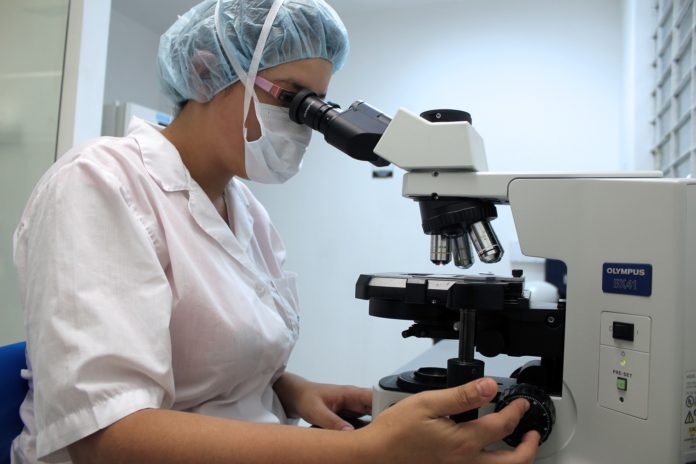Pathology services are central to the detection, treatment and monitoring of infectious diseases
Pathology is the cornerstone of modern medicine, ensuring that patients are correctly diagnosed and given an appropriate treatment.
However, a new Series in The Lancet highlights how common presumptive treatment – treatment without a confirmed diagnosis – is likely to be in many low- and middle – income countries (LMICs) as a result of a serious shortage of pathologists, laboratory services and basic medical tests.
Pathology services include a set of medical specialities – such as biochemistry, microbiology, haematology, histopathology – that, along with imaging, represent the breadth of diagnostic testing that is needed to support all health care
The authors warn of the impact on patient care with patients poorly diagnosed or given inappropriate treatments, and of the wider impact on health systems in LMICs if already scarce resources are wasted, ultimately threatening progress on universal health coverage and the sustainable development goals (SGDs).
Pathology services are central to the detection, treatment and monitoring of infectious diseases. In addition, many non-communicable diseases (such as diabetes) cannot be detected or diagnosed on the basis of clinical history or physical examination alone. Other diseases, such as cancer, require pathology services not only for detection and diagnosis but also for the specific classification and staging that is needed to guide treatment and help determine prognosis. Non-communicable diseases such as diabetes and cancer are now responsible for 7 out of 10 deaths worldwide, with rates fast accelerating in LMICs.
“In Europe or the USA, we take for granted that if you see your doctor with symptoms of liver disease, you will be diagnosed based on a blood test, and given the correct treatment. Similarly, we wouldn’t dream of diagnosing breast cancer without performing a biopsy. But, in far too many countries around the world, diagnosis and treatment can be based on no more than a well-educated guess,” says Dr Kenneth Fleming, lead author of the Series, National Cancer Institute and University of Oxford, UK.
Pathology services include a set of medical specialities – such as biochemistry, microbiology, haematology, histopathology – that, along with imaging, represent the breadth of diagnostic testing that is needed to support all health care. Pathology also includes autopsies and forensic pathology to determine cause of death.
Alongside infrastructure and equipment, the authors say that the insufficient numbers of pathologists is a major issue. Based on available evidence, and supplemented by a survey of over 250 pathologists in LMICs, the authors of the Series estimate the number of pathologists in sub-Saharan Africa at one per 1 million patients – a ratio roughly 50 times lower than that of high-income countries. In China, the rate is estimated at lower than one per 130000 patients. To reach staffing levels similar to the UK or USA, the authors say that China needs an estimated additional 70000 pathologists.
Professor Michael Wilson, Series author, Denver Health Medical Center, Colorado, USA says: “Our research has identified four key barriers which must be addressed, to ensure that pathology and laboratory medicine service delivery is optimal in re-source-limited settings: insufficient human resources and workforce capacity; inadequate education and training; inadequate infrastructure; and insufficient quality, standards and accreditation.”


